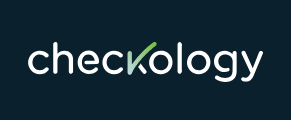Spotting Fake News Step by Step
- Check the domain name. Does it look strange? Those ending unusual domains such as “.com.co” are fake news.
- Refer to the ‘About Us’ area on a website to see what it says, or refer to the websites above for more information on the story or source.
- Read multiple news sources to see how (or if) they are reporting on the same story
These three steps were adapted from Merrimack College professor Melissa Zimdars’ work with OpenSources.co (see summary).
Dig Deeper
- 10 Questions for Fake News Detection from the News Literacy Project,
- guide from ConnectSafely.org
- PBS’s lesson how to teach about fake news
Lessons
| Evaluating Information Online | |
| Accuracy | |
| • Who wrote the page and can you contact him or her? • Why was this document produced? • Is this person qualified to write this document? | • Know the difference between author and Webmaster. • Make sure the author provides an e-mail, address and/or phone number. |
| Authority | |
| • Who published the document and is the publisher different than the "Webmaster?" • Did an organization or institution publish this document? A business? A university? | • What qualifications are listed for the author or authors? (e.g.: university degree, title, etc.) • Where is the document published? Check the URL domain in the search bar for clues. |
| Objectivity | |
| • What are the goals of this web page? To inform? To persuade? To entertain? To sell? • How detailed is the information? • What opinions, if any, are presented by the author? | • Is the webpage used for advertising? If it is, how might the information be biased? • View any web page as you would a commercial on television. Ask yourself, “Why was this written and for whom?” |
| Currency | |
| • When was the web page produced? • When was the web page last updated? | • Are there any links that don’t work on the web page? How many? |
| Tips: | |
| • In the URL, a tilde ~ usually indicates a personal web directory rather than being part of the organization's official web site. • Check the header and footer of the web page to find the author and publisher. | • In order to verify an author's credentials, you may need to consult other sources as well. • Check and compare the web site to others which are both similar and different. |
| Sources: | |
| Queen's University CRAAP Guide to Evaluating Information | UBC librarians' tips for evaluating information on the Internet |
| Bedford/St. Martin's tips for evaluating sources | Cornell University Libraries Five Criteria for Evaluating Web Pages |


